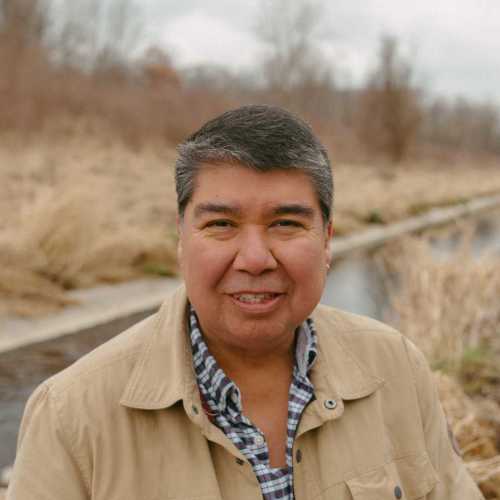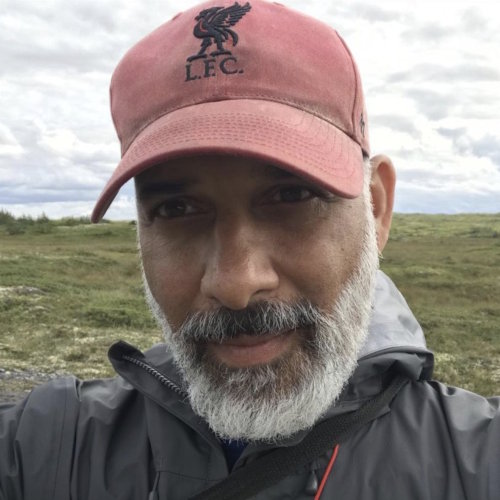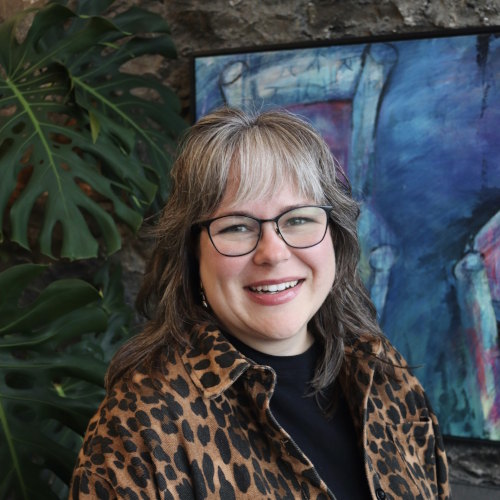Elevating Indigenous Co-Governance and Leadership in Urban Parks: Possibilities, Challenges, and Pathways
This event has passed
The University of Windsor National Urban Park Hub (UW-NUPH) invites you to the first of three events in our Park Talks series, an exciting and thought-provoking set of discussions exploring the future of Windsor's proposed National Urban Park. This event offers a unique opportunity to learn from three distinguished leaders in the field of Indigenous governance and land stewardship:
Professor Clint Jacobs (Indigenous Knowledge Table, University of Windsor), an elected Walpole Island First Nation Councillor and Faculty of Science Indigenous Knowledge Connector at UW-NUPH, will discuss his role in advancing co-creation efforts and fostering connections with Indigenous communities across the region.
Dr. Faisal Moola (University of Guelph), a prominent conservation biologist and environmental policy expert, will share his insights from over 15 years at the David Suzuki Foundation, including his contributions to the creation of Canada's first Urban National Park.
Allison Bishop, is the Manager of the Conservation through Reconciliation Partnership and a doctoral candidate at the University of Guelph, brings a wealth of experience in social justice, decolonization, and transformative change, with a focus on Indigenous-led conservation initiatives across Canada.
Join us for an engaging and thought-provoking discussion that will explore the possibilities, challenges, and pathways for Indigenous leadership in urban park governance.
We hope you can attend this important event as we seek to elevate Indigenous voices and foster collaborative approaches to conservation and urban park management.
About the speakers

Clint Jacobs
UW-NUPH Co-PI & Professor, University of Windsor
Clint Jacobs is a faculty member in the Department of Integrative Biology at the University of Windsor and in the inaugural role of Indigenous Knowledge Connector. He is a member of Walpole Island First Nation, the founding director of the Walpole Island Land Trust and long-time Manager at the Walpole Island Heritage Centre NinDaWaabJig. As a co-PI at the UW-NUPH he guides work to advance the co-creation of Elder and Youth Advisory Circles, discussions on an Indigenous Stewardship Centre co-located with the National Urban Park site, and connect with Indigenous communities across the City and region.

Dr. Faisal Moola
Associate Professor, University of Guelph
Before joining the University of Guelph, Prof. Faisal Moola worked for the David Suzuki Foundation for over 15 years, where he was the organization's Director General for Ontario and Northern Canada. Holding a PhD in biology from Dalhousie University, Moola has published widely in scientific journals on topics of ecology, conservation biology, and environmental policy. He has contributed to a number of significant conservation and sustainability policy outcomes in Canada, including the protection of over 2 million hectares of temperate rainforest in British Columbia, the expansion of the internationally renowned Greenbelt in Ontario and the creation of Canada's first Urban National Park on the edge of Toronto.

Allison Bishop
UW-NUPH Co-PI & Professor, University of Windsor
Allison Bishop is a settler whose ancestors emigrated to what is colonially known as Canada as working-class agricultural laborers from the United Kingdom. Her matrilineal family has settled on the shores of Azhoonyang (Lake Simcoe) in the territory of the Williams Treaty Nations for five generations. Today, she lives in Guelph, Ontario, within the treaty territory of the Mississaugas of the Credit First Nation (Treaty 3 between the Lakes Purchase) and the traditional hunting grounds of the Haudenosaunee.
About the Park Talks Series
This series is designed to foster community engagement and promote discussions that align with the National Urban Park Program's core objectives. Each session will dive into the intersection of nature conservation, equitable access, and Indigenous-led stewardship, and how these principles inform the vision for Windsor's National Urban Park. It's an opportunity to deepen our collective understanding of the environmental, social, and cultural dimensions that are key to creating an inclusive and sustainable urban park for future generations.
Read more about the series here.
We acknowledge with gratitude the land, air, water, fire and all the beings of creation that sustain us. We honour the longstanding relations of many First Peoples to this place since time immemorial (including the Anishnaabe, Haudenosaunee, Lunaapee, and Huron/Wendat Peoples). We acknowledge colonial harms. We commit to renewed and respectful relations to people, nature and this place.

® 2024 University of Windsor
